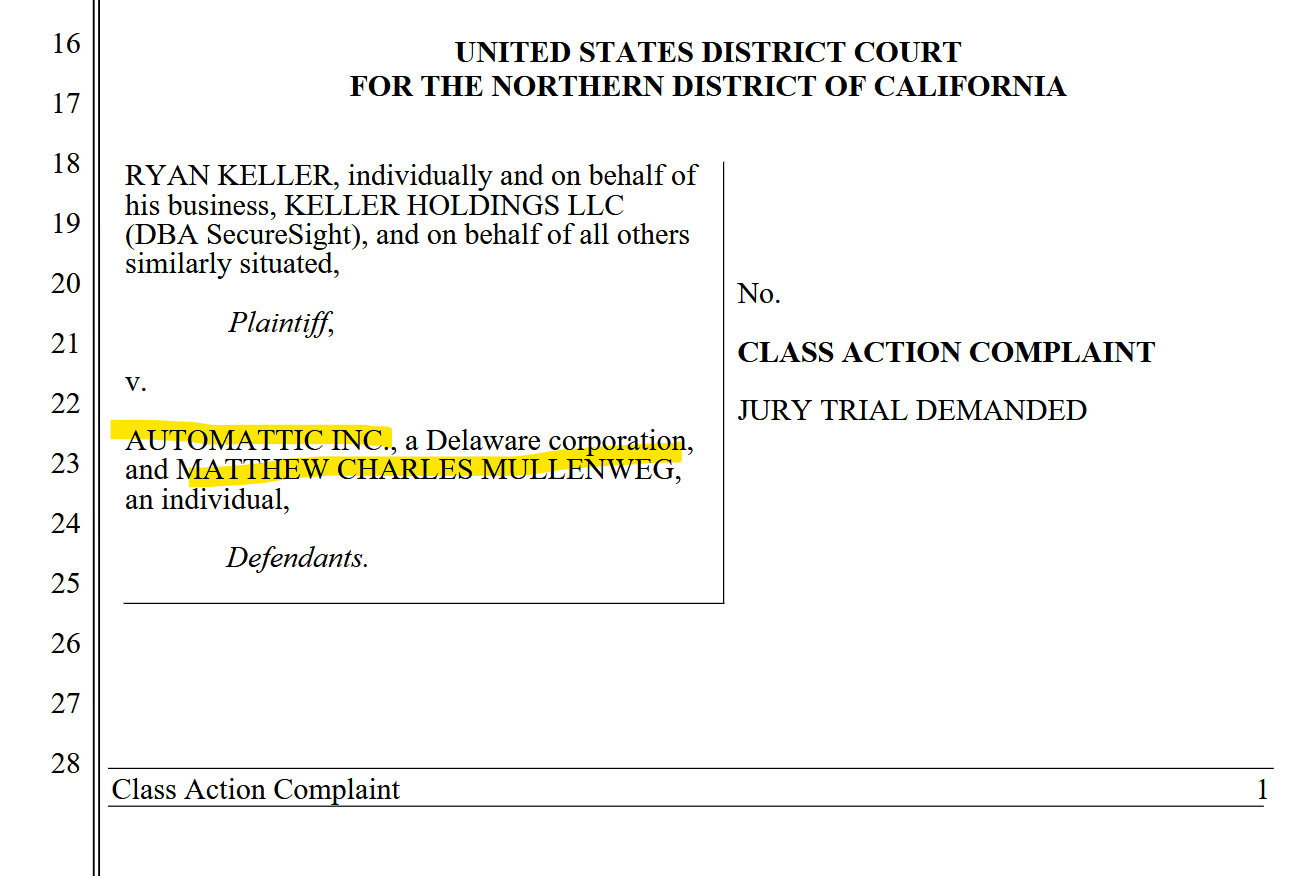The open-source giant Automattic and its co-founder Matt Mullenweg are at the center of a legal firestorm. A class action lawsuit accuses them of anti-competitive practices, contract interference, and monopolistic behavior against WP Engine (WPE)—one of the largest managed WordPress hosting providers. The suit alleges that Mullenweg and Automattic weaponized their control over WordPress to disrupt WPE services and pressure customers into leaving the platform. The legal battle, which expands beyond trademark disputes, has ignited calls for reforming WordPress governance.
Key Points
- Class action lawsuit filed against Matt Mullenweg and Automattic for allegedly sabotaging WP Engine (WPE) and its customers.
- Allegations include: disruption of services, interference with contracts, and monopolistic control over the WordPress ecosystem.
- Tactics described in the lawsuit include blocking access to essential WordPress resources, exposing WPE customers’ website addresses, and forcing users to disassociate from WPE.
- The lawsuit seeks financial restitution and a court order to halt Automattic’s alleged anti-competitive behavior.
- Legal battle raises broader concerns over the governance of WordPress, sparking debates in the open-source community.
Legal Showdown: Mullenweg & Automattic Accused of ‘Weaponizing’ WordPress
The lawsuit paints a disturbing picture of how Automattic allegedly exploited its dominance over the WordPress ecosystem to damage WP Engine (WPE), a major competitor in the managed WordPress hosting space. Filed in a California federal court, the suit alleges that Mullenweg and his company engaged in a systematic campaign to interfere with customer contracts, degrade WPE’s services, and push users toward alternative platforms under Automattic’s control.
According to the legal filing, Automattic allegedly blocked access to the WordPress.org website, forced users to acknowledge they were not affiliated with WPE, and even published customer website addresses in an effort to create public pressure against WPE users. The complaint further claims that these actions had no legitimate legal basis and were instead part of a strategy to weaken WP Engine’s position in the market.
One of the most explosive allegations is that Automattic deliberately disrupted WPE’s services, forcing customers to endure outages, security vulnerabilities, and degraded performance. Plaintiff Keller, the lead complainant, describes how the disruptions damaged his business, led to financial losses, and forced him to explore alternative hosting providers. The lawsuit argues that WPE customers did not receive the services they paid for due to Automattic’s targeted interference.
Class Action Lawsuit: A Reckoning for Automattic?
The lawsuit is seeking class action status, claiming that Automattic’s actions harmed not just the plaintiff but a broad group of WPE customers. Under Rule 23 of the Federal Rules of Civil Procedure, the suit argues that all WPE customers who had active hosting plans between September 24, 2024, and December 10, 2024, qualify as potential class members.
The plaintiffs are demanding:
✅ An injunction to stop Automattic’s alleged unfair business practices.
✅ Full financial restitution for affected WPE customers.
✅ Legal accountability for monopolistic behavior within the WordPress ecosystem.
Automattic, a company that profits from premium WordPress-related services while simultaneously overseeing the open-source WordPress project, has long faced criticism over conflicts of interest. This lawsuit adds legal weight to accusations that the company is misusing its power to eliminate competitors.
The Bigger Picture: WordPress Community Backlash & Calls for Governance Reform
This lawsuit is more than just a legal battle—it has reignited serious concerns over the centralized control of the WordPress ecosystem. Critics argue that Automattic’s dominance creates an uneven playing field, allowing it to dictate access to critical WordPress resources.
With allegations of market manipulation and anti-competitive behavior, some members of the WordPress community are now demanding structural reforms to ensure that WordPress remains a truly open-source, community-driven platform—free from the influence of any single corporate entity.
As the legal battle unfolds, one question looms large: Is Automattic’s grip on WordPress finally being challenged?
Call for Information
FinTelegram is investigating further into Automattic’s business practices and potential monopolistic control over WordPress. Are you a WP Engine customer affected by these actions? Have you faced similar disruptions from Have you faced similar disruptions from Automattic or its affiliates?





